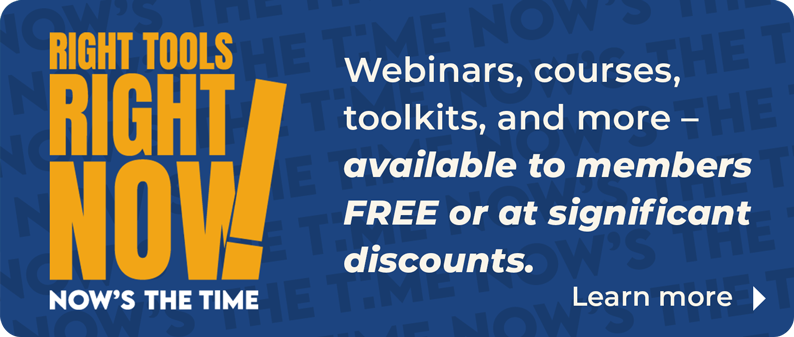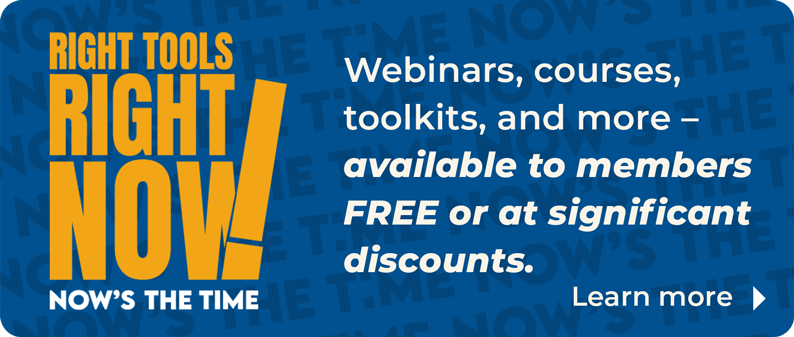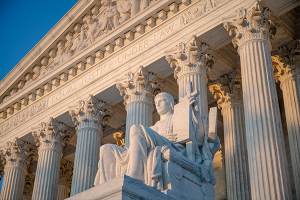
Advocacy
References
We've already done the research for you. References (formerly Field Guides) offer links to articles, eBooks, websites, statistics, and more to provide a comprehensive overview of perspectives. EBSCO articles (E) are available only to NAR members and require a password.
CARES Act (COVID-19 Stimulus) and Student Loans
AARP Answers: Student Loans and the Coronavirus (AARP, Dec. 22, 2021)If you want to continue making payments, those payments will be counted toward the principal of your loan, reducing your overall interest payments and ultimately paying down the loan faster.
If you're in default on your federal student loans, your wages, tax refund, and Social Security benefits including disability benefits won't be garnished during the forbearance period. In addition, your loans won't accrue interest during the forbearance period. Once again, private loans are not covered by the CARES Act.
COVID-19 Emergency Relief and Federal Student Aid (Federal Student Aid/US Dept. of Education)
The student loan payment pause is extended until the U.S. Department of Education is permitted to implement the debt relief program or the litigation is resolved. Payments will restart 60 days later. If the debt relief program has not been implemented and the litigation has not been resolved by June 30, 2023 — payments will resume 60 days after that. We will notify borrowers before payments restart.
Student Loan Debt’s Impact on Home Ownership
Student Loan Debt Found to Be a Major Contributor to Homeownership Disparities (Bankrate, Mar. 7, 2023)
A 2022 Bankrate survey reported that 64 percent of Black respondents and roughly 70 percent of Hispanic borrowers have delayed financial milestones – like buying a home – due to their student loan debt. In comparison, less than half of white respondents agreed.
Can You Get a Mortgage with Student Loans? (Nerdwallet, Feb. 15, 2022)
With stable income, timely bill pay and emergency fund and retirement savings, you may be in a good position to buy a house despite your student loans. Included are some options to make a stronger application.
Student-Loan Burdens Upend the American Homeownership Dream (Bloomberg Wealth, Jan. 5, 2022)
Overall, the rate of homeownership among student borrowers age 18 to 35 has dropped 24% in the decade through 2019, the report shows. People living in Black and Asian communities saw the biggest declines -- even as they started with the lowest rates back in 2009.
The Impact of Student Loan Debt (National Association of REALTORS®, Sep. 2021)
- While the plurality say student loan debt has not impacted any of the tested employment decisions (42%), others say debt has kept them in disliked or uninteresting jobs, forced them to take second jobs, or take a job outside their preferred field.
- Over one quarter of student loan debt holders say their debt has impacted their decision or their ability to purchase a home (29%), take a vacation (35%), or purchase a car (31%).
- Approximately half of student loan debt holders say their debt has impacted their life choices. One third say it has impacted their ability to continue their education (33%) while 14% say it has impacted their decision to start a family.
Heavy Student Loan Debt Forces Many Millennials to Delay Buying Homes (NPR, Feb. 1, 2019)
“Homeownership rates for people ages 24 to 32 dropped nearly 9 percentage points between 2005 and 2014 — effectively driving down homeownership rates overall. In January, the Fed estimated 20 percent of that decline is attributable to student loan debt”
Homeownership among Young Americans: A Look at Student Loan Debt and Behavioral Factors (The Journal of Consumer Affairs, March 1, 2018) E
From Abstract: “Three key findings arise from the research. First, life cycle and demographic characteristics, such as marital status, education, and income, continue to be strong predictors of homeownership. Married households with a college degree and children are among the most likely to own a home. Second, young adults with student loan debt are no more or less likely to own a home than someone without debt after controlling for a number of factors; however, students who have already paid off their loans are more likely to own a home. Finally, respondents who express a willingness to take risks in finances are more likely to own a home while those who are more conscientious are less likely to own a home.”
eBooks & Other Resources
eBooks
The Impoverishment of the American College Student (eBook)
Sold My Soul for a Student Loan (eBook)
Quit Like a Millionaire: No Gimmicks, Luck, or Trust Fund Required (eBook)
Have an idea for a real estate topic? Send us your suggestions.
The inclusion of links on this page does not imply endorsement by the National Association of REALTORS®. NAR makes no representations about whether the content of any external sites which may be linked in this page complies with state or federal laws or regulations or with applicable NAR policies. These links are provided for your convenience only and you rely on them at your own risk.














